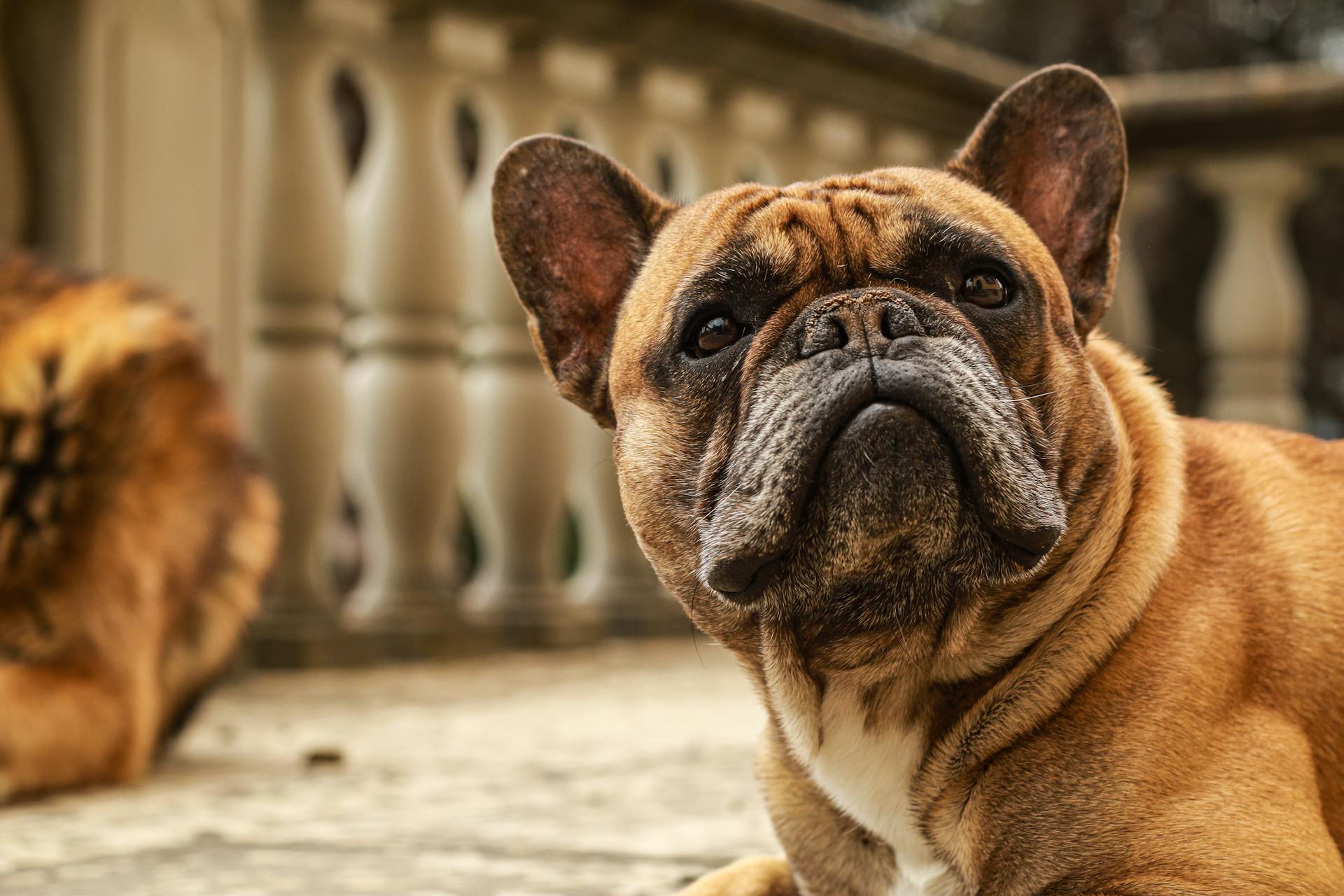
French Bulldogs are known to form strong bonds with their owners, which can sometimes be misinterpreted as clinginess. They have a unique affectionate nature that requires attention and interaction.
This attachment is partly due to their history as companions and lap dogs, bred to be gentle and affectionate. Their human-like facial expressions and big eyes only add to their irresistible charm.
French Bulldogs can become anxious or stressed if left alone for extended periods without proper exercise and mental stimulation. This can lead to destructive behavior or excessive barking.
To alleviate this, owners can provide their French Bulldogs with a variety of toys and interactive games to keep them engaged. Regular exercise and playtime can also help reduce separation anxiety.
Understanding Clinginess in Bulldogs
Clinginess in Bulldogs is a common trait that many owners have observed in their French Bulldogs. They are known to be Velcro dogs, meaning they stick to their owners like Velcro. This behavior is also called Velcro Dog Syndrome.
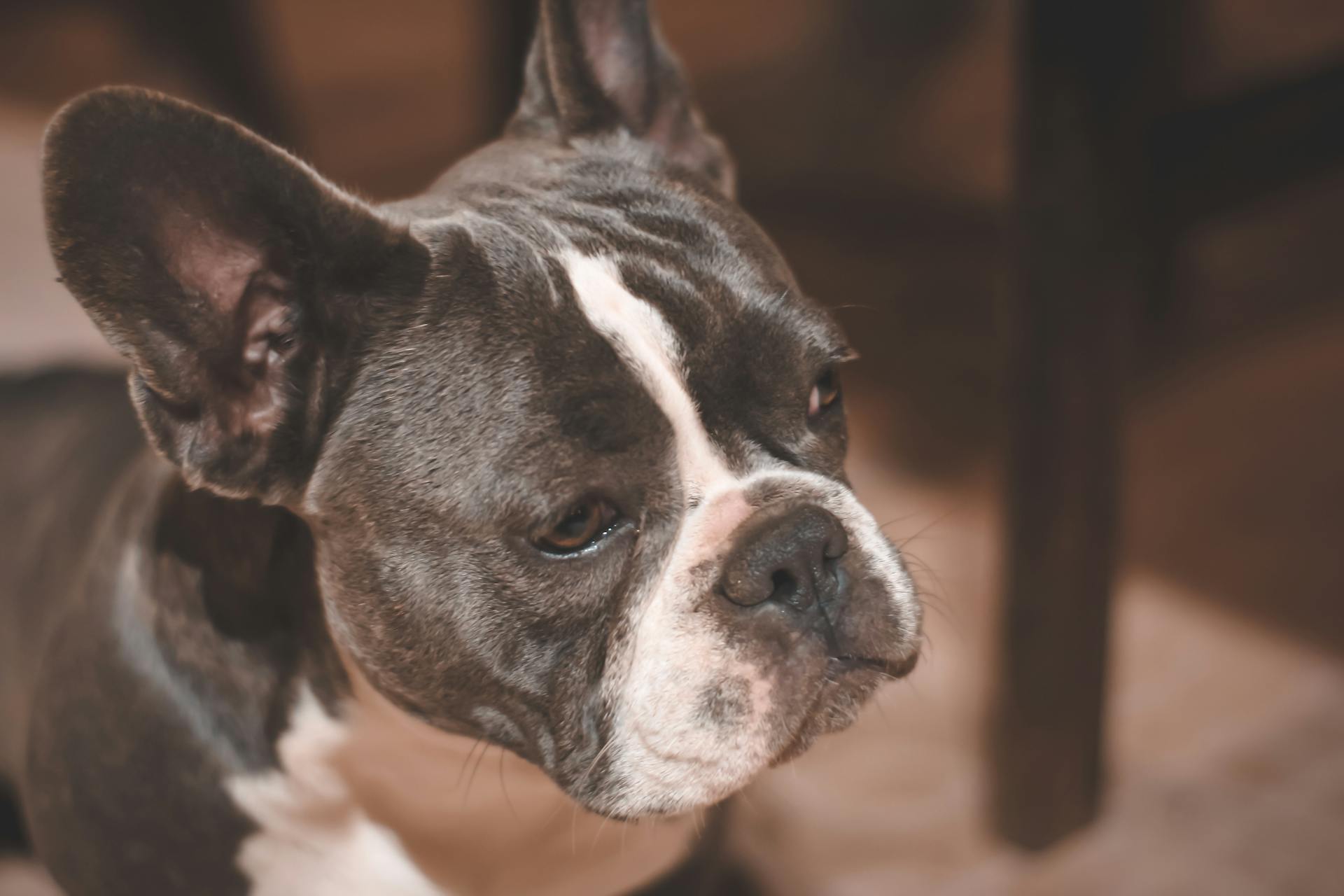
French Bulldogs have been selectively bred to be dependent on their owners, which can lead to clingy behavior. They really love their owners and want to be with them as much as possible. Dogs are pack animals, so they're used to being with their family as much as possible.
One of the main reasons why French Bulldogs are clingy is because they love their owners and want to be with them. They may also be feeling stressed or anxious about something, which can lead them to act clingy. If they don't know what's going on, they get worried—and that can lead them to act clingy because they want reassurance from their owners!
The causes of clinginess in French Bulldogs are many and varied. One of the most common reasons is that they feel scared. They may have some sort of trauma in the past that has caused them to be afraid. If you've just moved into a new home, for example, or if there's been a noise or disruption that has scared your dog, they might be feeling extra anxious and therefore more clingy.
Here are some common symptoms of Velcro Dog Syndrome:
- Always keeping an eye on you
- Wanting to be as close as possible to you as often as possible
- Following their owner everywhere they go, never leaving their side
- Never wants to be alone, especially when other people like friends are around
- Waiting to see when you might be getting up to go to another room or leave the house
It's essential to understand that clinginess in French Bulldogs can be triggered by different reasons, including overattachment, genes (Velcro dog syndrome), and age. Older dogs often feel insecure because they can start to gradually lose their sense of vision or hearing, which can lead to clingy behavior.
Preventing Clingy Behavior in Bulldogs
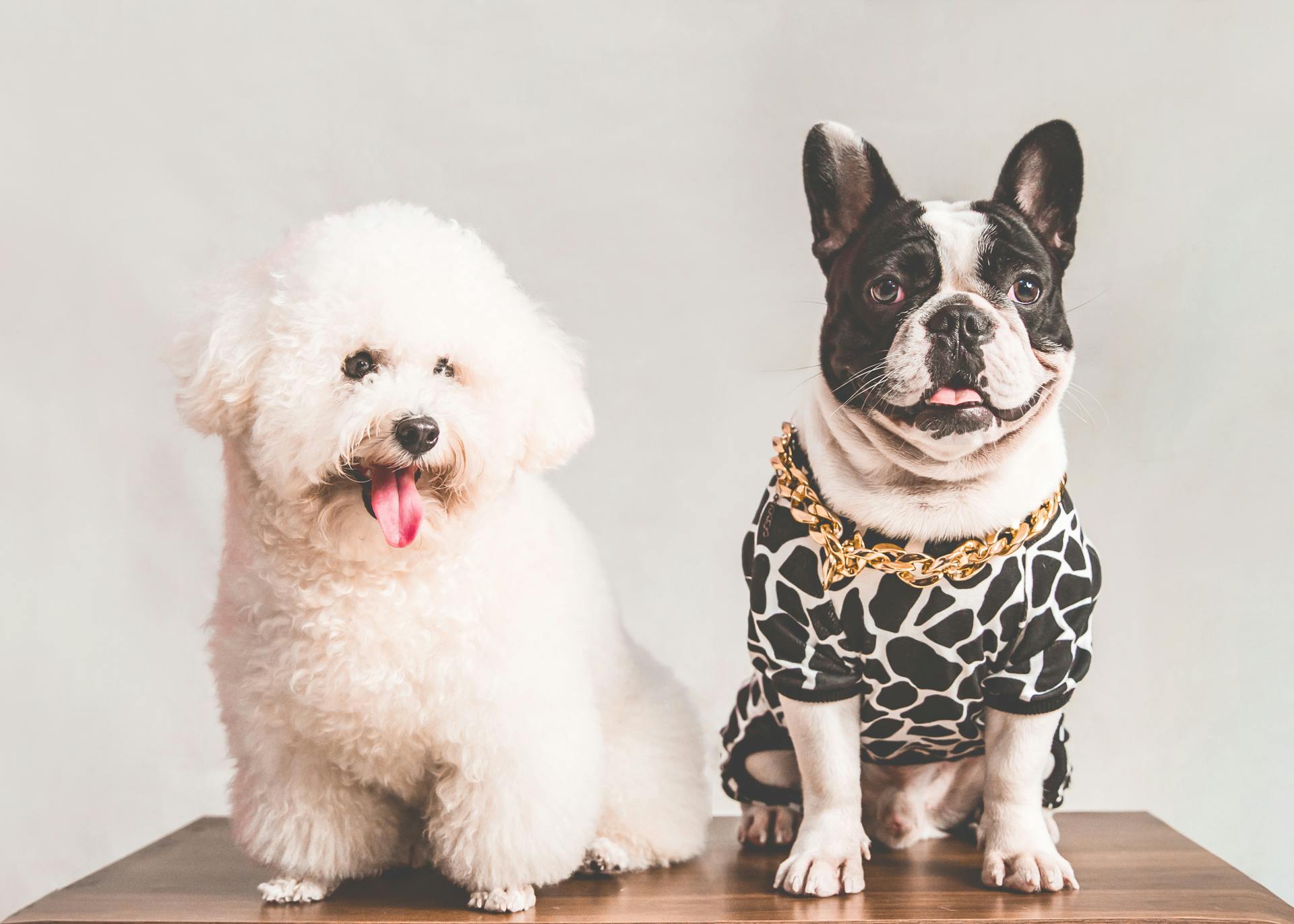
French Bulldogs are known for their affectionate nature, but some owners may find their clingy behavior overwhelming. They're often referred to as "Velcro dogs" because they stick to their owners like glue.
Daily exercise is essential to prevent clingy behavior in French Bulldogs. Regular physical activity helps reduce anxiety and stress, which can contribute to clinginess.
Practicing leaving your Frenchie alone for longer periods can also help them become more comfortable with being alone. Start by leaving them for short periods and gradually increase the time.
Interactive toys can keep your Frenchie mentally stimulated and engaged, reducing their need for constant attention. Try using a Kong treat or bully stick to keep them occupied.
Here are some tips to help prevent clingy behavior in French Bulldogs:
- Daily exercise
- Leave them alone for longer periods
- Use interactive toys
Some French Bulldogs become clingy because they're lonely or want attention. However, giving them too much attention can reinforce their behavior and make it worse.
Why Bulldogs are Clingy
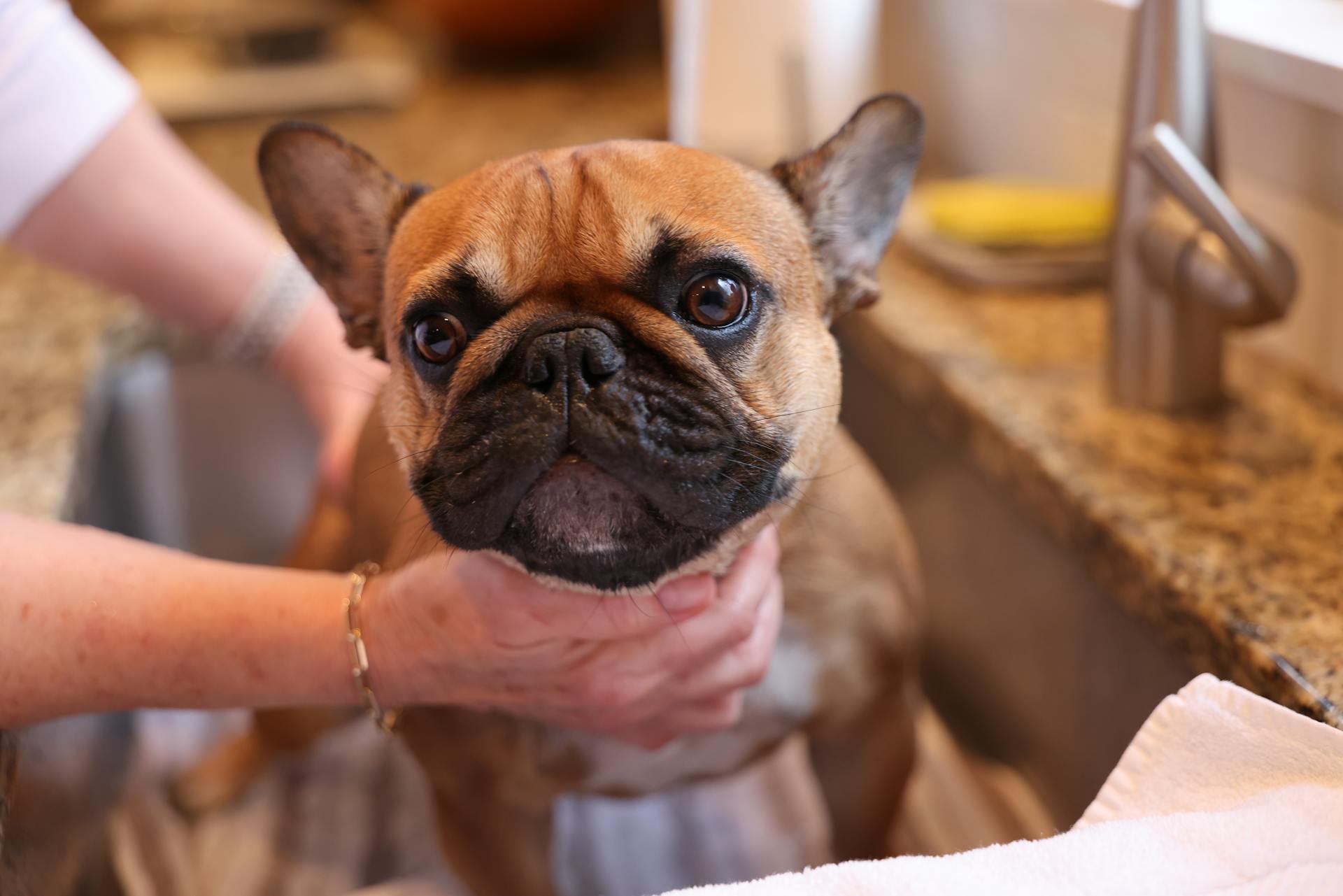
Their clinginess can be triggered by various reasons, including overattachment, genetics (Velcro dog syndrome), and age. If your Frenchie is acting clingy, it's essential to understand that it's not just about being annoying; they're trying to be close to you.
Dogs are pack animals, so they're naturally inclined to be with their family as much as possible. If you've had a busy day at work or are going through a tough time, your dog may sense your stress and anxiety, leading them to act clingy.
Some common causes of clinginess in French Bulldogs include feeling scared, having separation anxiety, or seeking attention. If your Frenchie is clingy due to fear, it may be because of past trauma, such as a new home or loud noises.
Here are some common symptoms of Velcro Dog Syndrome:
- Always keeping an eye on you
- Wanting to be as close as possible to you as often as possible
- Following their owner everywhere they go, never leaving their side
- Never wanting to be alone, especially when other people are around
- Waiting to see when you might be getting up to go to another room or leave the house
It's crucial to understand that while clinginess can be cute, it may be a sign of underlying issues. If your Frenchie is exhibiting sudden clingy behavior, it's essential to consult with your vet to rule out any health-related problems.
Loyal
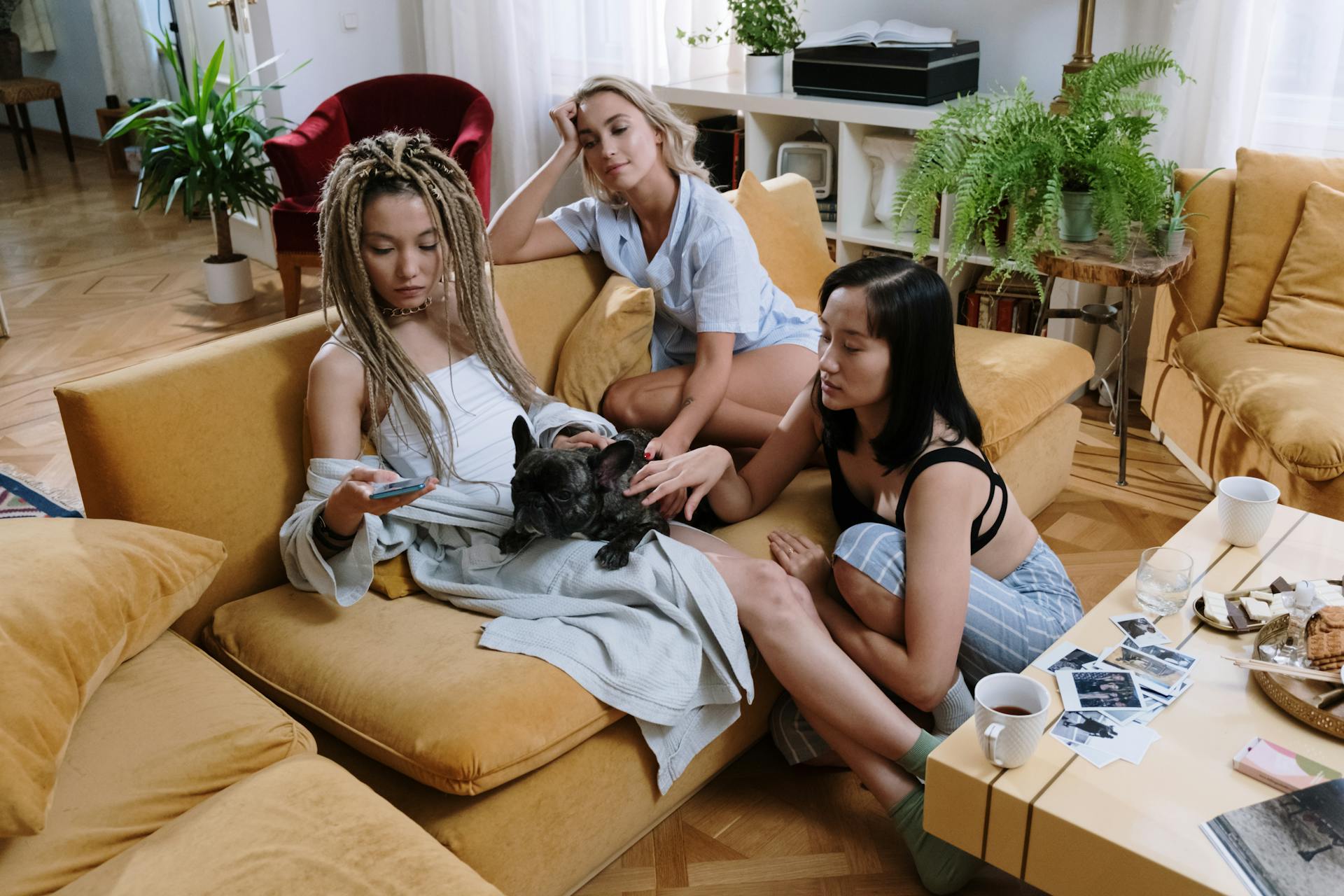
French Bulldogs are known for their loyal nature, which is a big part of why they can be so clingy. They form strong attachments to their owners and dislike being left alone.
Their loyalty is so strong that they'll often follow their owners everywhere they go, even to the point of being referred to as "velcro dogs." This is because they're pack animals and are used to being with their family as much as possible.
Frenchies are content to follow their humans around the house, preferring to be in the same room or even on the same lap. They're not independent and don't like being left home alone for long periods of time, so they need a lot of attention from their owners.
Their desire for constant companionship is one of the defining characteristics of French Bulldogs. They're perfect for those seeking a small, affectionate pet that acts as a constant companion.
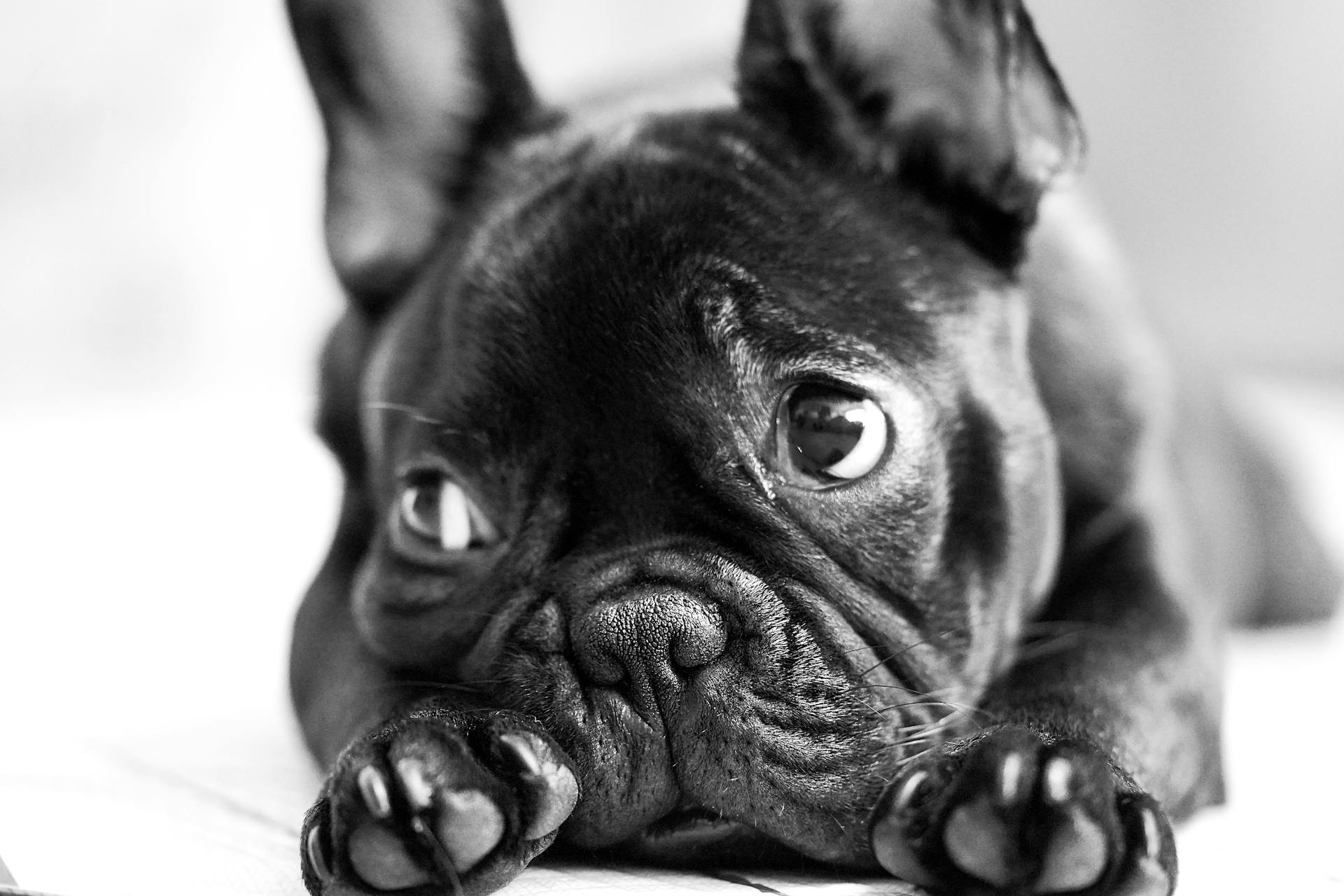
Here are some breeds that share similar loyal and clingy traits:
- Australian Shepherds
- Cocker Spaniels
- Papillons
These breeds are known for their gentle and affectionate nature, and they often display a clingy demeanor towards their owners. They enjoy being involved in family activities and dislike being left alone.
Their loyalty and attachment to their owners can be a blessing and a curse. On the one hand, it makes them great companions and loyal friends. On the other hand, it can make them anxious and clingy if they're left alone for too long.
If this caught your attention, see: Are Chihuahuas Clingy
Frequently Asked Questions
Do French Bulldogs like to sleep with you?
French Bulldogs often enjoy sleeping with their owners due to their strong desire for human companionship. If you're considering sharing your bed with your Frenchie, the feeling is likely mutual.
Do Frenchies like to cuddle?
Yes, French Bulldogs are known for their affectionate nature and love to cuddle with their humans. They thrive on human interaction and attention, making them perfect companions for those who enjoy snuggling.
Sources
Featured Images: pexels.com


